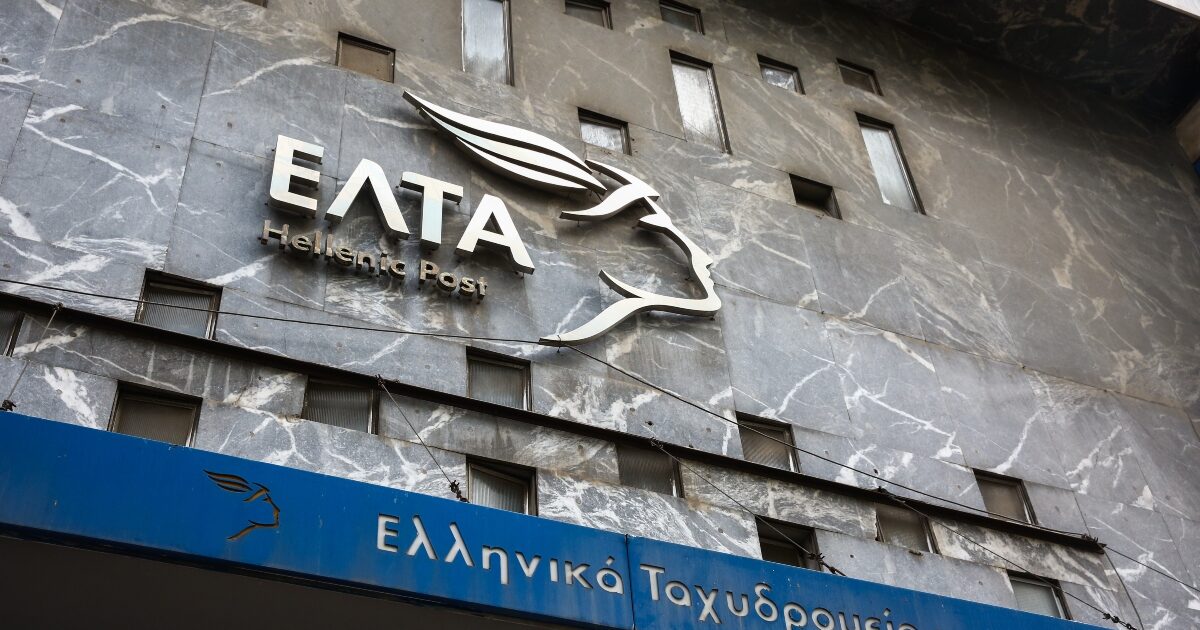They are heading for a new era, with his initiative SECthe Greek Post Office (ELTA) with the aim of maintaining their social role and at the same time ensuring their sustainability in a rapidly changing environment, while still having the largest network in the country, but the times require a new approach.
Finance Minister Kyriakos Pierrakakis, referring last Thursday (November 6, 2025) to the developments (including the gradual closing of loss-making ELTA stores nationwide), was in favor of restructuring the organization, stressing that the challenges it faces are great, mainly due to the increased cost of operation in an extremely competitive parcel market, while the volume of traditional mail has decreased dramatically due to the digital transformation.
According to him, as is now the case throughout Europe, the role of the postman is evolving and strengthening, as it turns into a provider of integrated door-to-door services. Within this context, the shop-in-shop model, which is already being piloted, it is now considered an internationally established practice.
“I am in favor of the restructuring because I want the Organization to survive,” said Mr. Pierrakakis, adding: “We want ELTA to continue providing this service. The postman will continue to go door-to-door, but the new era of ELTA goes through solutions such as shop-in-shop and synergies with the local market, to ensure universal service and the sustainability of the network.”
Also, the minister mentioned that “for a local community the local supermarket or the local coffee shop plays a social role. This social role is leveraged by the Post Office and not only in Greece, already in many places, everywhere in Europe. So that had to be part of that equation much more than a sudden decision that was little or no communication.”
From the post office to the supermarket
The shop-in-shop model could not only change the way ELTA operates, but also the role of participating businesses. With the cooperation of local shops, supermarkets or small businesses, points could be created where citizens can not only do their daily shopping, but also carry out transactions and postal services.
If this is established, the character of supermarkets is changing substantially. From simple points of purchase and sale, they could be transformed into points of service and transaction, enriching their function and strengthening their connection with the local community.
At the same time, the question of possible supply to the supermarkets for the services they will offer in the context of these partnerships is opened. Such a scheme could act as an additional incentive for retail businesses, enhancing their participation in the network and contributing to the sustainability of the new model.
New operating model with a social token
In the wake of the reactions to the closure of stores, the Superfund presented its priorities for the new era of ELTA. As noted, the managing director of the Superfund, Yiannis Papachristou, had a meeting with the administration of the organization, in order to start a cycle of consultation with the local communities, in all the areas where restructuring is planned. The aim is to formulate the best solutions through cooperation and open dialogue.
At the same time, there will be an information campaign about the new mode of operation and the services already offered by ELTA, while the implementation of the ongoing strategic transformation plan is expected to be accelerated. Mr. Papachristou admitted that although a comprehensive plan had been drawn up, critical parameters, such as the preparation and information of the local communities, had not been taken into account.
For this reason, he pledged that the next phase will include substantial consultation with institutional and local bodies, but also the search for partnerships with local businesses, strengthening the social dimension of the network.
Transformation with digital tools and synergies
The Superfund underlines that ELTA is already on the path of modernization, having implemented important reforms. The merger of ELTA with ELTA Courier created a strong second pole in the postal market, while there have been investments in technologies and digital services which allow real-time monitoring of each shipment. Postmen were equipped with portable terminals and mini-printers so that they could perform all services in a single home visit.
At the same time, it is progressing the utilization of the real estate of the organization. The relocation of the ELTA offices resulted in savings of 55,000 euros per year, while the Kaisariani building, which has significant commercial value, will be used as part of an overall plan. For the first time, a valuation of the entire real estate was completed, in order to proceed with its holistic management.
ELTA services are also expanding in banking productsthrough a partnership with Alpha Bank, while large corporate clients from the telecommunications, banking and international courier industries have returned. The service hours were extended to 11 cities, while with the ELTA Fastpost application citizens can schedule appointments in 74 stores. At the same time, smart PostBoxes were installed in various regions of Greece and the fleet of delivery vehicles was strengthened for more efficient service.
The challenges and the next day
In recent years, ELTA has proceeded to eliminate loss-making activities, such as the supply of electricity, while implementing a voluntary exit program, redesigning the distribution network and incorporating robotic technology in the sorting process, significantly reducing costs and delivery time. Although these moves improved the economic data, the postal services market remains demanding, with intense competition and rapid developments at the international level.
According to the Superfund, the postal market is fully liberalized and does not receive state aid, while mail has been reduced to 90%. Competition is increasing, from both domestic and international courier companies, while citizens are now demanding more speed and accuracy in services.
Service needs are shifting from brick-and-mortar stores to home delivery, a trend reflected in new data: 92% of pensions and 90% of mail are now delivered directly to the home.
